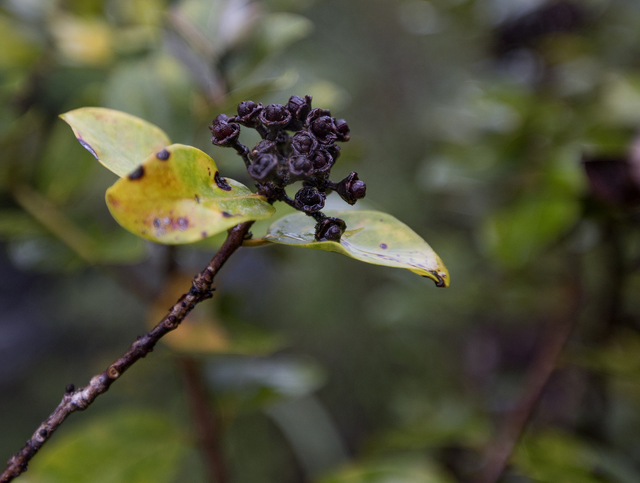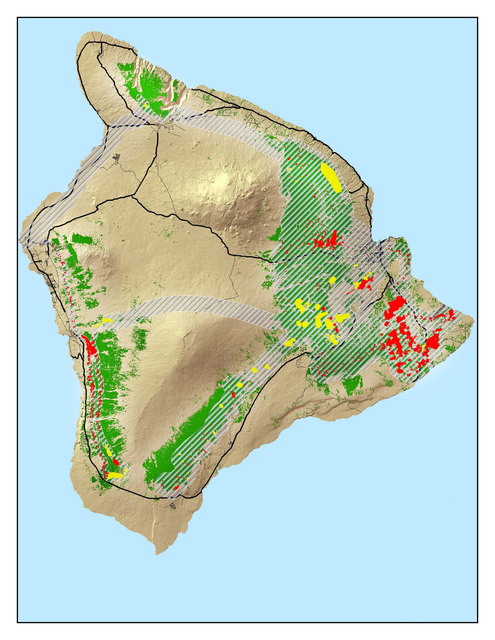HILO — Bills that would fund efforts to combat a disease that is rapidly killing Hawaii Island’s native ohia trees continue to advance in the state Legislature.
HILO — Bills that would fund efforts to combat a disease that is rapidly killing Hawaii Island’s native ohia trees continue to advance in the state Legislature.
Senate and House finance committees will decide today whether to recommend the bills for floor votes before moving them across the aisle to be considered by the other chamber.
House Bill 1597, introduced by state Rep. Nicole Lowen, D-Kailua-Kona, seeks funding for the state Department of Agriculture for research and mitigation efforts, and would require the department to submit a report to the Legislature regarding the cause of the rapid ohia death, possible control strategies, and more.
The bill was approved unanimously with amendments by the House Committee on Agriculture after a hearing on Feb. 10. The hearing featured testimonial support from people like Suzanne Case, chairwoman of the state Board of Land and Natural Resources, who said that her department would support the measure as long as it does not negatively impact appropriations for other priorities.
“The recent spread of rapid ohia death on Hawaii Island threatens the state’s most important forest species and requires urgent action,” she said. “Recent surveys conducted by the department preliminarily found 34,000 acres of ohia forest affected by this disease, which is more than double the area mapped in 2014.”
Other supporters included Kona Councilman Dru Kanuha, the University of Hawaii, the Nature Conservancy, the Hawaii Farm Bureau, and others.
Following the hearing, agriculture committee members recommended that legislators consider appropriating at least $200,000, with one member pushing for $300,000, to research preventative and treatment methods to control and contain the damage caused by the fungus, which has rapidly spread throughout Puna since its discovery around 2010 and was recently confirmed to be established in West Hawaii.
Lowen said Tuesday that she was optimistic it could become law this year.
“I would venture to say that I feel fairly positive” that the bill will make it through the House, Lowen said Monday. “It’s still possible it could be deferred,” but other bills are also looking to address the problem.


